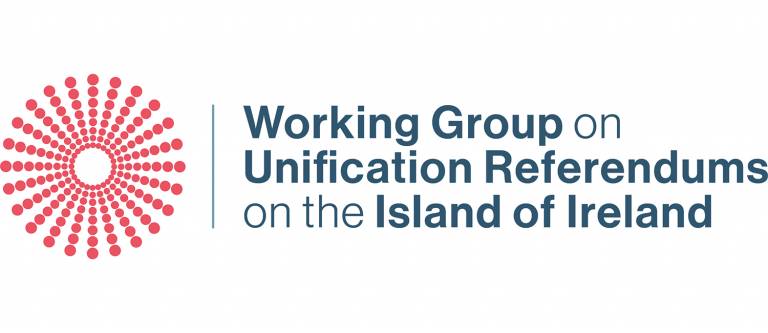NEW Working Paper: Public attitudes to referendums on Irish unification
13 August 2021
Constitution Unit researchers publish a working paper on the findings of a large-scale public consultation on the prospect of a referendum on Northern Ireland’s constitutional status.

Citizens and civil society groups from across Northern Ireland were invited to share their hopes, concerns and thoughts on the format and conduct of any future referendum on the question of Northern Ireland’s constitutional status via an online public consultation in the summer of 2020.
The consultation was initiated by the Working Group on Unification Referendums on the Island of Ireland, and informed the Working Group’s Final Report, published in May 2021. The working paper, published today, outlines the responses to the consultation in more detail than the Working Group’s Final Report could do. It gives an insight into how people are thinking and talking about the possibility of unification referendums across Northern Ireland at present.
The consultation ran for six weeks from July 22 to 1 September 2020 and received a total of 1,377 responses. Responses were more numerous from nationalists (62% of the total) than from unionists (17.8%) or those identifying with neither community (18.9%). The working paper authors, Alan Renwick, Nadia Dobrianska, Conor J. Kelly, and Charlotte Kincaid, conclude that Irish nationalists, for understandable reasons, are much more willing to participate in discussions on such referendums than are unionists, who prioritise the maintenance of the current Union.
Respondents from across society voiced both hopes and fears on this topic: there were hopes relating to both referendums and unification itself, but also concerns, and sometimes fears, across all communities. Though people expressed thoughts on many aspects of referendum design, it was clear that there are few aspects of the process on which widely shared public preferences have yet emerged. The authors conclude that, should a referendum take place in the future, political actors, including both governments, should be attentive to the hopes and fears expressed in the working paper. They should also be aware of the many aspects of referendum design that would be vitally important for the smooth running of any vote, on which detailed public discussion has not yet taken place.
What was the Working Group?
Chaired by Unit Deputy Director Dr Alan Renwick, the Working Group was established to examine how any future referendum on the constitutional status of Northern Ireland would be best designed and conducted. The Working Group did not take a view on whether such a vote would be desirable or what the outcome should be.
The Working Group was independent of all governments and political parties and included 12 members who were experts in politics, law, sociology, and history, based in Great Britain, Northern Ireland, Ireland, and the United States. The project was funded by the British Academy and the Joseph Rowntree Charitable Trust.
Key Links
- Read the working paper
- Final report by the Working Group on Unification Referendums on the Island of Ireland
- Find out more about the Working Group on Unification Referendums on the Island of Ireland
- Watch the Final Report launch video.
 Close
Close

